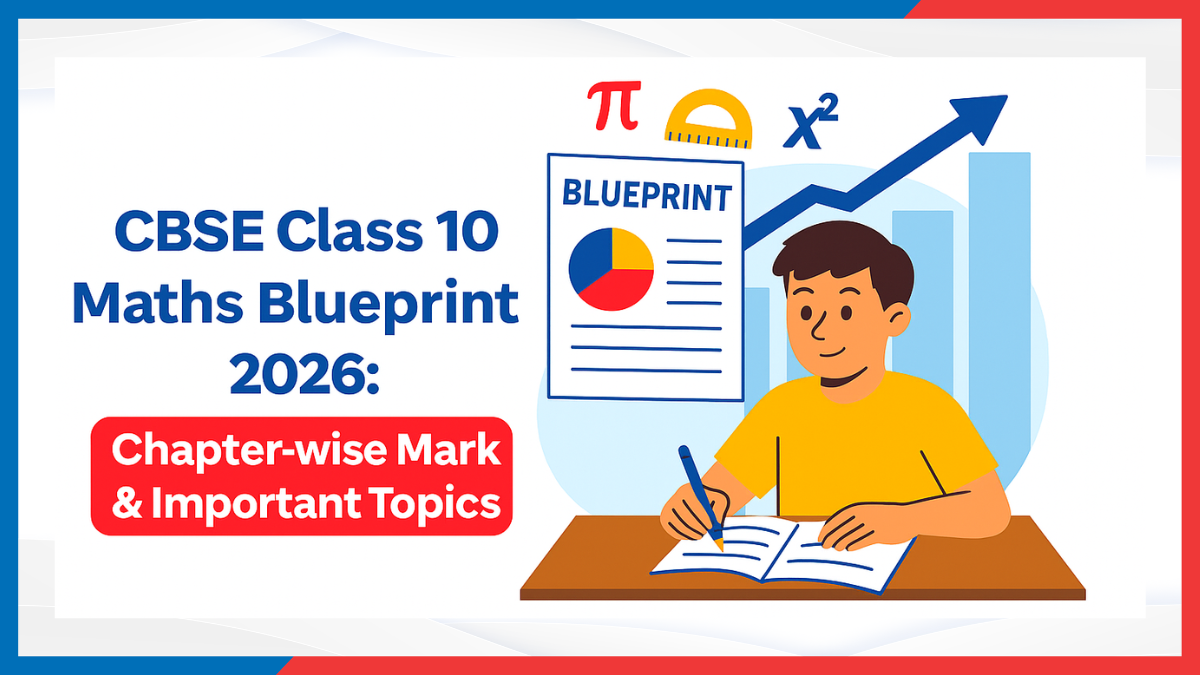As the CBSE Class 10 board exams are just around the corner, students are racing against time to try their best and achieve the maximum score. While it's the crucial step in your academic journey, it is imperative to make a strategy to complete revisions and boost your performance without feeling overwhelmed.
A smart strategy and structured revision can save you from last-minute cramming and unnecessary stress. Whether you have completed your revision from the best question bank for Class 10 or solved the combined sample paper set, it's time to check out 7 high-impact, last-minute tips to take the load off and maximize results.
So let's explore-
7 Last-Minute Tips for CBSE Class 10 Board Exams
Consider High-Value Topics First:
One of the smartest moves you can make during your revision time is to prioritize high-value topics for exams. You can find a predictable pattern that CBSE follows for marking. You can even check the previous papers to find those chapters and topics. It is recommended to use the PYQ (Previous Year Questions) book to find high-value topics for Class 10.
Use a Combined Sample Paper Book
You can get all the subjects in one volume in a combined sample paper Class 10 book. Such books follow the advanced CBSE pattern that involves assertion reasoning, competency-based questions, and even case studies. This book is not only helpful in time management but also reduces your exam pressure. While buying a combined sample paper book, make sure it offers relevant solutions associated with the CBSE marking scheme and comes with multiple mock sets.
Rely on NCERT and CBSE Books
Relying on NCERT and CBSE books is the smart strategy to boost your performance in CBSE board exams, as, of course, NCERT is its foundation. Whether it is about MCQ, case-based, or assertion reasoning questions, NCERT solved papers and CBSE guidebooks can make your revision time easier. You can even try highlighting formulas and definitions while revisiting in-text questions.
Don't Skip Mock Texts
If you are thinking- why taking a mock test is essential?, then it is a good idea to take a mock test, but under real conditions to boost your speed, confidence, and accuracy. Here is the checklist you can follow-
-
Set a timer for 3 hours.
-
Use an OMR sheet.
-
No interruptions and breaks.
-
Review and match your answers with CBSE marking patterns.
Solve a Question Bank for CBSE Class 10th
It is recommended to solve the best question bank for CBSE Class 10th. It helps in targeted practice or even during the last week of revision. These books have questions based on the difficulty levels, chapters, and competency. The popular question bank features include, but are not limited to, previous 5-10 years questions, chapter-wise MCQs, case studies, common mistakes section, flow charts, and mind maps. You can use the CBSE Class 10 PYQ book with the question bank to maximise your preparation output.
Create a Last Week Timetable
Create a smart last week's time table to avoid mental strain while getting more things done. Creating a last-week timetable will help you avoid late-night cramming. It is a good idea to study in a 90-minute cycle with 15-20-minute breaks.
How to make a simple last week plan?
|
Day |
Subjects |
Activities |
|
Day 1-2 |
Maths and Hindi |
Sample papers + Formulas revision |
|
Day 3-4 |
Science and SST |
MCQs + Mind maps + PYQs |
|
Day 5 |
English Grammar |
Assertion-Reasoning + Practice tests |
|
Day 6 |
Complete mock test |
Evaluate weak areas |
|
Day 7 |
Mixed revision |
Flowcharts, diagrams |
Stay Healthy and Mentally Fit:
Keep calm and eat healthy. Remember that CBSE 10th board exams are a crucial milestone, but never compromise with your health. Consider self-care and do necessary exercises to stay both physically and mentally fit.
Listed below are a few important tips for self-care-
-
Drink plenty of water.
-
Take 7-8 hours of sound sleep.
-
Take a light, healthy, and protein-rich diet.
-
Avoid screen-time before sleep.
-
Follow the deep-breathing technique
-
Go for a walk daily for 15 minutes.
-
Think positive.
-
Avoid comparison and negative talk.
FAQs (Frequently Asked Questions)
Q1. Is it essential to solve a combined sample paper book for the CBSE Class 10th?
Yes, it helps to make your revision time easier and improves your time management in covering all subjects.
Q2. Which is the best question bank for CBSE Class 10th?
It is important to pick the one that contains chapter-wise solved MCQs, PYQs, and CBSE-based sample papers. Along with this, it should also come with answer keys linked with CBSE marking patterns.
Q3. What to consider along with the PYQ Book?
You can use NCERT textbooks, combined sample papers, and a question bank.
Q4. Can I just solve guidebooks and skip NCERT?
No, NCERT is a foundation, and it is mandatory as all the questions are formed using NCERT concepts in CBSE Class 10th exams.
Wrapping Up
CBSE Class 10th board exams are not just about how hard you prepare, but how regularly you practice, revise, and make plans. With a calm, focused mind and smart strategy, you are more than ready to score good marks that reflect your preparation. Ensure you use the correct tools, such as a combined sample paper + CBSE books for Class 10, a best question book, and a PYQs book for Class 10.
Remember that your consistency during exam preparation matters more than perfection. Just believe in yourself and your preparation, and you will see the desired results!









